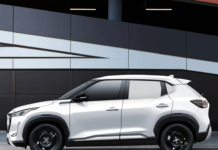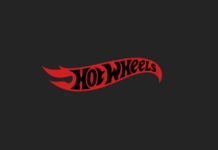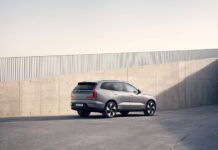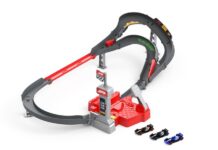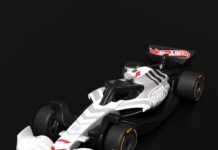- A look behind the scenes: the “Colour and Trim” department at Volkswagen headquarters in Germany
“We waited a long time for this kind of yellow.” Designer Astrid Göring carefully pushes a small bowl of the spice turmeric aside to make space for the so-called “mood board”.
This display features different shades of yellow: among other things, a photo of glowing corn fields, the label from a French lemonade bottle and a fabric sample from some Italian curtains. “For our initial inspiration, we collect everything. We use these examples as a basis for the initial meeting with the paint supplier. Here we need to communicate our idea of the final hue: with a fine character. Or, with vivid sparkles as soon as the sun shines on it,” explains Astrid Göring.
She and her colleague Susanne Gerken work at Volkswagen headquarters in Wolfsburg, Germany in the “Colour and Trim” department. This is where new colours, trim and new kinds of cloth for the different Volkswagen models are conceptualised.
Together with her team, Susanne Gerken is responsible for colour design in the B-segment and have a spectrum of around 80 different exterior colours to choose from for this complex task. Paint comes in solid variants, in metallic finishes and in mother of pearl effects which include classic Volkswagen colours like Tornado Red, Pure White and Oryx White.
In addition to “Turmeric Yellow” (for the newly launched Golf 1.0 Litre TSI, among others), the latest trend colours are “Atlantic Blue Metallic” available for the Touran and “Bottle Green Metallic” on the Beetle and Beetle Cabrio. Gerken and Göring see all green hues – from Moss Green to Bottle Green and Viper Green – as new trend colours.
The two colour experts only have a small scope for large experiments: Within five weeks after the initial meetings with the paint suppliers, they receive a 10 by 15 cm colour tile. They work with visualisations and 3D models in order to see whether the paint actually is suitable for the vehicle. The designers do not see the actual effect on the respective vehicle model until the end of the development process.
In addition to the contemporary and durable character of the hues, the production process is an environmentally-friendly one; Volkswagen works almost exclusively with water-based paints. The painting process is checked and further developed continuously with the aim of reducing CO² emissions in order to reduce Volkswagen’s impact on the environment and also save energy and costs.
In Volkswagen’s Uitenhage Plant, CO² emissions have dropped by 34% since 2010, due mainly to the environmentally friendly processes at the new Paint Shop.
The new Paint Shop, which opened in 2006, has a maximum capacity of 750 units per day. It has 28 robots and 63 work stations on the line and the colour capacity includes four types of primer, 14 base coat colours and two types of clear coat.







